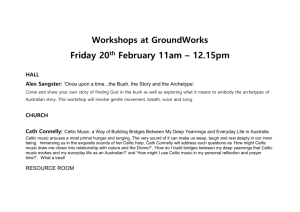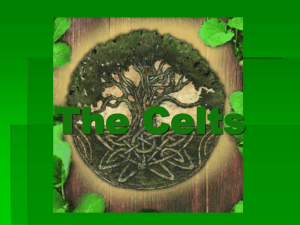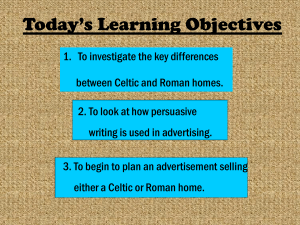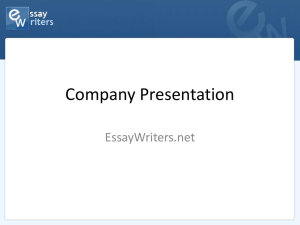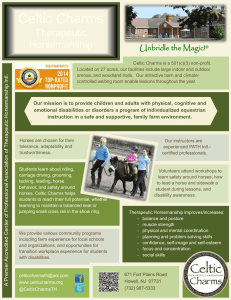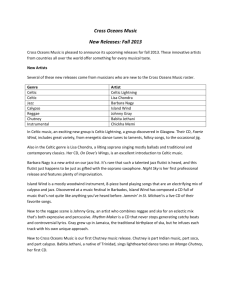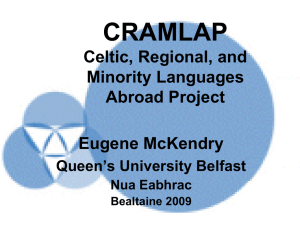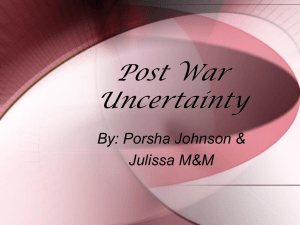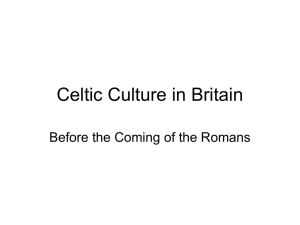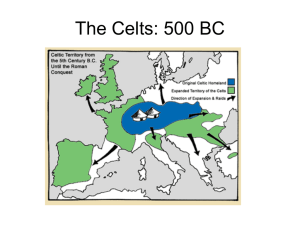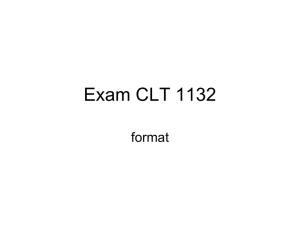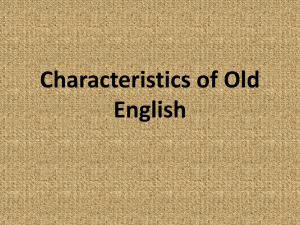CLT 2300
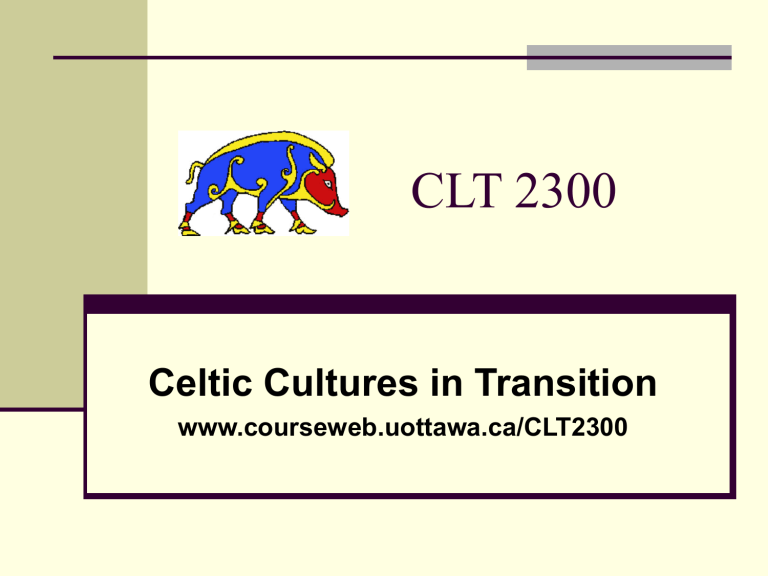
CLT 2300
Celtic Cultures in Transition www.courseweb.uottawa.ca/CLT2300
CLT 2300- the Syllabus: the books
1.
2.
3.
Rebuilding the Celtic Languages:
Reversing Language Shift in the Celtic
Countries , Y Lolfa. Ed. Diarmuid O Neill.
The Last of the Celts , Marcus Tanner. Yale
University Press.
Student pack (not available yet). Will include information about writers, and extracts from their work.
CLT 2300- the Syllabus
COURSE REQUIREMENTS
There will be one midterm during the course as well as an an essay which will encourage you to do your own research on a specific aspect of one modern Celtic culture. There will also be a final exam based on the work you will have done during the semester.
CLT 2300- the Syllabus
The breakdown for marking is as follows:
Midterm 30% 28 February
Essay: 40% 3 April
Exam: 30%.
CLT 2300- the Syllabus
IMPORTANT DATES:
MIDTERM: 28 February.
ESSAY SUBMISSION: 3 April
CLT 2300- the Syllabus
You must attend 80% of all classes for this course. Failure to do so can lead to exclusion from the final exam and a F grade. An attendance sheet will be circulated at the beginning of each class from 17 January until the last day of classes..
PLEASE NOTE: ACCORDING TO FACULTY
REGULATIONS ALL REQUIREMENTS OF THE
COURSE MUST BE FULFILLED. IF NOT THIS
LEADS TO AN INCOMPLETE GRADE (INC). THE
REQUIREMENTS OF THIS COURSE CAN BE
FOUND ABOVE IN BASIC COURSE
INFORMATION. DIOLCH!
CLT 2300- the Syllabus
PLAGIARISM
Ensure that you have understood the
University’s policy on plagiarism. You can find full information on the following website.
http://www.uottawa.ca/plagiarism.pdf
What Will You Learn About in this
Course?
Recent politics
Language matters
Writers and their ideas
Film
Politics: Some of the topics
Scotland - it has been announced that a referendum will be held in Scotland about independence.
We will follow events closely, discover what the implications are for the UK. Will the UK break up?
What would the fall-out be for the other
‘Celtic’ nations of the UK?
Language planning
We will be examining the interaction of language and society in the Celtic countries today.
Wales - how will the appointment of a
Language Commissioner (inspired by the
Canadian model) further encourage the use of what is the most used Celtic language-
Welsh?
Language Planning
How does language revitalization become a political issue? Is Ireland successful in promoting Irish (Gaeilge) in today’s Ireland?
Has the French State successfully undermined Breton in Brittany to the point that it has lost most of its prestige? What is the work of the Ofis ar Brezhoneg ?
Language Planning
Is Scottish Gaelic the national language of
Scotland, or only a regional language within
Scotland? How many languages does
Scotland have? Does the revitalization of
Gaelic have an impact on Scotland’s image of itself?
Writers and their ideas
We will also be reading short passages by contemporary writers from the Celtic world.
We will also look at the lives of some of these writers and examine their ideas about the countries in which they live.
Nuala N í Dhomhnaill and Cathal Siarcaigh from Ireland.
Writers and their ideas
From Cornwall we will read some of the new generation of Cornish-language writers:
Tim Saunders, Neil Kennedy,Judith
Larham.
We’ll see that languages can re-emerge from the past and find a new beginning.
Writers and their ideas
We have a taste of Welsh writing too from such contemporary writers as Gwyneth
Lewis (whose poetry is inscribed across the new parliament building in Cardiff, Wales).
We’ll talk about the novelist Mihangel
Morgan and the dramatist Michael Povey.
We’ll talk about the writer Brian Stowall and his Vampire novel in Manx.
And much else….
Film making in the Celtic countries
We will watch a small number of Celticlanguage movies (with English sub-titles).
At the moment we are hoping that we will have films in Irish, Welsh and Scottish Gaelic.
The purpose will be to observe how ‘Celtic’ societies today are very different one from the other, and how they are fully integrated into the contemporary, fragmented world we live in.
www.courseweb.uottawa.ca/CLT2300
Not in This Course….
Some things you won’t encounter in this course:
Folklore
Ancient customs
Language learning
Medieval History
Singing.
